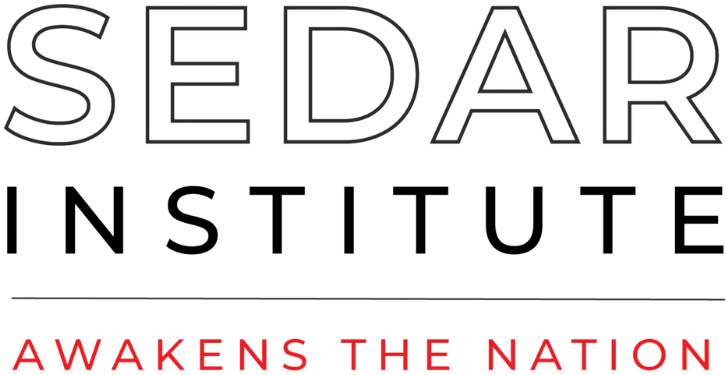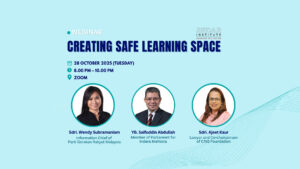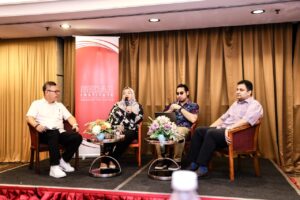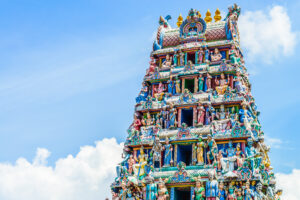
Author
Dato' Dr. Ilango Karuppannan
As the frontline defender of a nation’s interests on the global stage, the role of the foreign ministry is not very different from that of the army. Just as the military safeguards a nation’s borders, diplomats function as the guardians of its image, alliances, and strategic interests abroad.
Therefore, as soldiers undergo rigorous training to maintain peak readiness, diplomats, too, should undergo continuous and adaptive training to navigate the complexities of the ever-changing external landscape.
To address the evolving challenges and demands faced by the foreign service, this paper undertakes a simple gap analysis by examining the current training received by foreign service officers and assessing their effectiveness in light of the dynamic external environment.
The Malaysian Foreign Service is part of the Diplomatic and Administrative Service (PTD), often considered the backbone of the civil service. As such, the entry into the Malaysian foreign service is through admission into the PTD. Malaysian citizens are eligible to apply for positions within the PTD when vacancies are announced. The basic requirement is a bachelor’s degree, although many candidates with higher degrees also apply for these positions. Therefore, it is important to note that foreign service officers come from a diverse academic background.
The selection process involves a rigorous combination of a written examination and a comprehensive interview. Successful candidates will be required to undergo an intensive year-long training program at the National Institute of Public Administration (INTAN). This training is a critical phase aimed at equipping future PTD officers with a holistic understanding of the Malaysian civil service. The curriculum covers a broad spectrum of civil service intricacies. This is when they will also be exposed to the basics of foreign policy, international economics, and strategic issues.
Towards the conclusion of their training at INTAN, candidates displaying a proclivity for foreign service are identified and invited for a specialised interview by the foreign ministry.
In-Service Training
Those selected to join the foreign service will then begin their service as probationary officers in the Ministry of Foreign Affairs, where they will be assigned to specific “desks”. For example, an officer who is assigned to the Southeast Asia department could be put in charge of a particular Southeast Asian country together with several others. In this position, they will learn the basics of their job under the supervision of senior officers.
Within the first three years after their posting, the officers will be selected to undergo further training at the Institute of Diplomacy and Foreign Relations (IDFR), under the Ministry of Foreign Affairs.
At IDFR, they will be exposed to the basics of diplomacy, focusing on diplomatic communication, basic negotiations, and effective presentation techniques. As these skills form the bedrock of a diplomat’s toolkit this training is considered essential to career development, as it reinforces the skills that they would invariably have already picked up at work. This training is conducted for the most part by senior officers and retired diplomats who have distinguished themselves in the foreign service. The aim is to make the training more hands-on rather than a purely theoretical course. At the end of the training, officers will be issued a diploma, a prerequisite before embarking on overseas postings.
Officers who have completed this training will be identified for overseas postings to serve in Malaysian foreign missions abroad. However, before their departure, they will be required to undergo a week-long intensive training on protocol, dining etiquette, dressing, and other essential aspects of diplomatic conduct. This preparatory training aims to ensure that diplomats and their spouses represent the nation with the utmost professionalism and cultural sensitivity in their new roles.
Once in their assigned posts, diplomats are expected to apply their diplomatic skills and absorb additional skills pertaining to the practical aspects of diplomacy. This hands-on experience becomes a critical component of their learning process as a diplomat.
After completing a posting, the diplomat is recalled and internally reassigned to another “desk” within the foreign ministry. This rotation strategy is integral to exposing diplomats to diverse aspects of diplomacy, ensuring they gain a comprehensive understanding of the multifaceted nature of their roles. This process continues throughout an officer’s career.
As a small country with a small foreign service, the Malaysian foreign ministry does not practise specialisation. Nevertheless, some officers may be selected for foreign language training, either at IDFR or in a foreign country. Normally, they will be posted to countries where they can practise their language skills, but they may also be assigned to countries where that language is not spoken.
At intervals throughout their careers, foreign service officers, in alignment with their PTD counterparts, are required to attend periodic training and assessment courses facilitated by the Public Services Department (JPA). These courses, while essential for general skills development, tend to be heavily focused on domestic service and generic topics such as research methodology, public speaking, and presentation. These courses are required prior to being promoted into a higher grade.
When we look at the typical career paths of foreign service officers, we note that diplomatic training is at the generic level. Nevertheless, it is clear that the evolving geopolitical shifts demand specific skill sets to analyse events and articulate government in light of the developments. As Malaysian leaders often take a high profile in issues close to its national interest, the foreign ministry officials may be called upon to be a part of small negotiating or drafting groups in certain international caucuses. Hence, training that allows diplomats to immerse themselves in real-world situations is crucial.
In theory, it is possible to draw up a long shopping list of areas for training, but such an approach would neither be practical nor feasible. Therefore, in this article suggestions for training are sought in broad areas where a larger number of diplomats could be practically trained and where the skill could be applied across different issue areas. Four broad areas are suggested below:
Proposed Strategies for Enhancement
Global Exposure
Providing opportunities for mid-level officers to participate in such meetings or caucuses would enable them to apply the skills later. This exposure is pivotal in shaping their ability to address global challenges effectively and how to advance foreign policy using these forums. A systematic plan to provide exposure to all foreign service officers to such events could be incorporated into their career development paths.
Specialised Training Modules
Strategic Track II Engagement
Media and Public Messaging
Conclusion
A strategic and targeted approach to training and development is imperative for revitalising Malaysia’s diplomatic corps. In addition to these suggestions, other specialised training modules could also be incorporated into the diplomats’ career paths depending on the availability of resources and the needs of the country.





